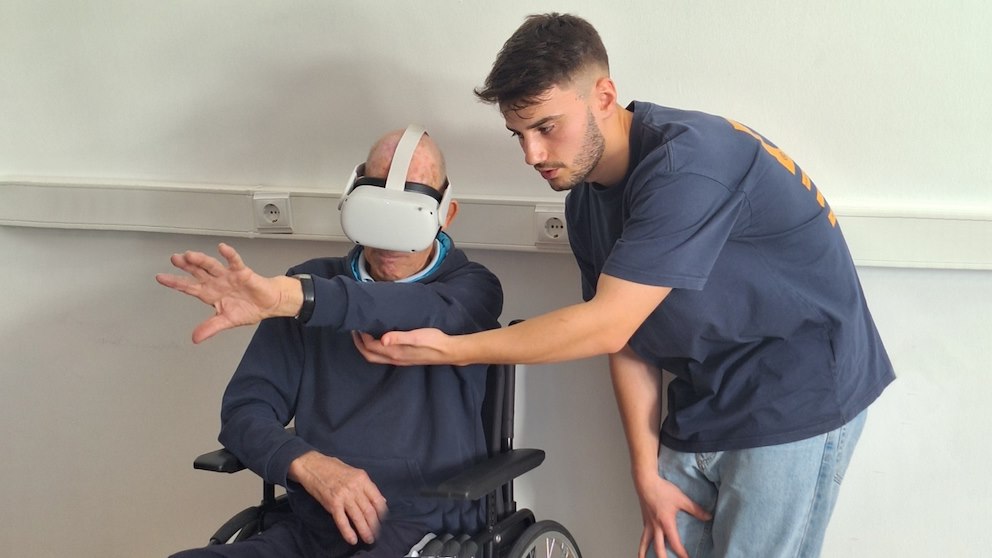- needhelp@info.com
- 88 broklyn silver street, USA
21Dec2023
-
21Dec2023
Sérgio Oliveira receives honorable mention in Prize for Social Sciences and Humanities

Sérgio Oliveira’s dissertation, developed as part of the master’s degree in Digital Games Development (MDJD) at the University of Aveiro (UA), deserved an honorable mention within the scope of the 2023 Prize for Social Sciences and Humanities awarded by the National Institute of Rehabilitation.
The work combines serious games and virtual reality to help the rehabilitation of stroke survivors and is part of a line of research by VARLab (https://sites.google.com/view/varlab/home), Institute of Electronic Engineering and Informatics of Aveiro (IEETA), Department of Electronics, Telecommunications and Informatics (DETI), UA, and was supervised by Beatriz Sousa Santos, professor at DETI, and Bernardo Marques, researcher at IEETA. It also had the fundamental collaboration of Paula Amorim, Physiatrist at the Center for Rehabilitation Medicine of the Central Region – Rovisco Pais (CMRRC-RP), Tocha, Portugal, and Paulo Dias, also a member of the VAR Lab, IEETA, DETI, UA.
It is a multidisciplinary work that followed a human-centered methodology, with the participation of stroke survivors, therapists, doctors and experts in Human-Computer Interaction during the iterative development of the proposed solution. In addition, the solution has been tested over several points in time by stroke survivors and CMRRC-RP therapists. The work was also presented at several events, highlighting the participation in Ciência 2023, and the demonstration for the Mutual Aid Group (GAM) Aveiro, where different audiences had the opportunity to learn more about the topic and try the solution. In addition to the aforementioned honorable mention, the work carried out has already resulted in two papers accepted for presentation at conferences, and other scientific publications are in the process of being prepared.
Prize for Social Sciences and Humanities
The Prize for Social Sciences and Humanities (https://www.inr.pt/ciencias-sociais-humanas) distinguishes the academic work that most contributes to the production of knowledge on disability and inclusion, and aims at the following objectives:
– To encourage students of master’s and doctoral higher education degrees to research and the production of knowledge on disability and inclusion, through academic work, in the area of social sciences and humanities;
– Combating discrimination on grounds of disability and promoting equal opportunities and citizenship for persons with disabilities;
– Reduce the impact of social, cultural, behavioural and physical barriers on the inclusion and participation of persons with disabilities;
– Promote the rights enshrined in the Convention on the Rights of Persons with Disabilities.
https://www.ua.pt/pt/noticias/16/85179
